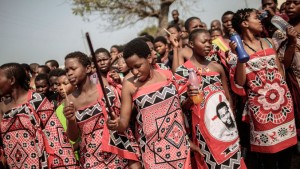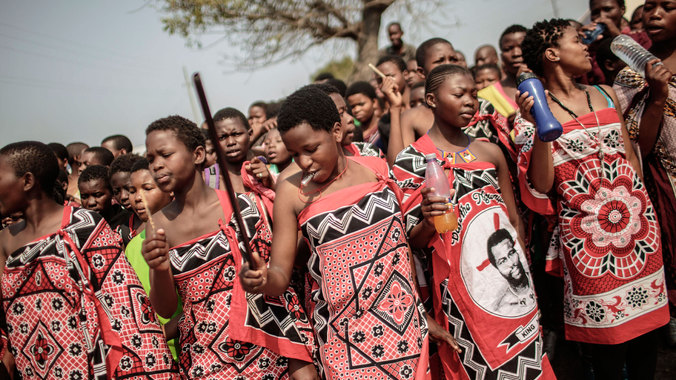Two thousand girls from the clubs run by the DREAMS project came together at a Community Media Trust event in uMngungundlovu in KwaZulu-Natal at the weekend.

The event held at KwaCaluza hall and playground hosted girls from the Girls Clubs around uMgungundlovu and uMsunduzi district.
DREAMS (Determined, Resilient, AIDS free, Mentored and Safe) is a partnership between the US President’s Emergency Plan for AIDS Relief (PEPFAR), the Bill and Melinda Gates Foundation and Girl Effect.
The programme is aimed at protecting young women from HIV and unplanned pregnancy, and offering them a safe space in which to discuss any problems.
According to the Department of Health, each week more than 2,000 young women and adolescent girls aged between 15 and 24 are infected with HIV – that’s two and a half times more than their male counterparts. Young South African women, especially in KwaZulu-Natal, continue to bear the brunt of the HIV epidemic.
Young women are generally exposed to greater risks of contracting HIV, for all sorts of reasons, including poverty, gender inequality and limited access to youth-friendly health services.
The clubs meet weekly for up to 40 weeks, for one and a half hours after school, in libraries, classrooms, halls and churches. The mentors who run the clubs are young women from the community between the ages of 18 and 30. The mentors educate the girls on a range of issues including risky behaviour, gender inequality, sexual violence and financial literacy.
“When a girl from the club has a problem the mentor will be the closest. This is especially important because in South Africa, we don’t have safe spaces where girls can meet,” said Lerato Moloka, provincial coordinator at Community Media Trust.
Girls Club mentor Sthokozile Nzimande from Embo in Pietermaritzburg said the project would make a significant difference to young women in her area.
“Our peers are faced with hardships from the earliest of ages, and it does not get any better for the black South African girl living in poverty. This is why some of them resort to accepting blessers in their lives, because they see no other way to survive. That’s what the girls clubs are here to change. They are here to give you information to help encourage saving, healthy living, safe sex and contraception, and generally to teach how to take care of yourself as a young woman.”
“I’m glad to see that our children might still have a fair chance after all. DREAMS is bringing to our children something that will help equip them for a better future, not a future that looks bleak and filled with bad choices and sorrow. I’m glad to see girls together looking happy and inspired to do positive things,” said Ester Ngcumisa, 66, who brought her granddaughters to the event.
Girls club member Nokwanda Khumalo, 19, from Trust Feed, said, “You walk in the girls club emotionally bruised, physically abused and unaware of the dangers and consequences of risky behaviour. But each day you walk out much more informed and in a way, ready for what life has to give to you.”
US Consul General, Frances Chisholm, said she hoped the partnership would help create a sustainable structure of similar projects owned and managed by South Africans to further alleviate the burden on HIV among young women.

